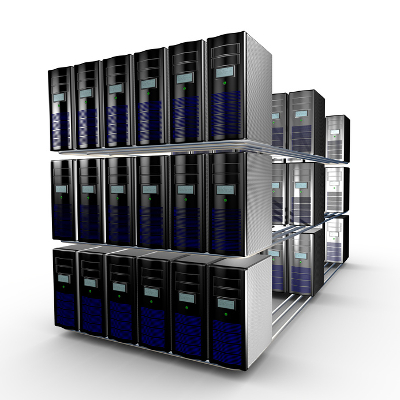Most of the Internet’s data is stored in data centers. Logistically, data centers are a great solution if you need to store large amounts of data. The drawback to this from an environmental perspective is that data centers may be doing more harm than good. This information is comes from a just published report by the National Resources Defense Council.
Brace Yourself for the Data Tsunami.
Now is the time to discuss the growing need for data storage facilities. We are experiencing a Big Data revolution, 90 percent of the world’s data was created in 2013. The massive data-collecting trend known as the Internet of Things (IoT) continues to grow and as a result data creation is forecasted to grow exponentially.
In the past, hard drives with increased data storage capacity kept up with society’s data consumption needs. Now with new data being generated at such a breakneck speed, it’s impossible to expect the development of hard drives to keep up. Consequently, we’re going to need more data centers.
Data Centers and Energy Consumption.
The environmental problem with data centers is as they grow they need increasing amounts of electricity. When you factor this increasing demand for electricity along with IoT’s exponential growth you begin to see the potential for an environmental crisis. InfoWorld explains:
U.S. data centers are using more electricity than they need. It takes 34 power plants, each capable of generating 500 megawatts of electricity, to power all of the data centers in operation today. By 2020, the nation will need another 17 similarly-sized power plants to meet projected data center energy demands as economic activity becomes increasingly digital.
How much energy will we need in the future to meet this expanding demand in order to power data centers? According to the NRDC report, “Nationwide, data centers in total used 91 billion kilowatt-hours of electrical energy in 2013, and they will be using 139 billion kilowatt-hours by 2020 — a 53 percent increase.”
If our civilization is able to switch to a clean and sustainable energy source by 2020, then this will become a moot point. Unfortunately our society’s ever-increasing demand for energy is still dependent on fossil fuel making it likely that these new data centers will be powered by an energy source pumping millions of metric tons of carbon dioxide emissions into the atmosphere.
The NRDC report claims that this environmental problem can be reduced if current data centers make stronger efforts to minimize waste. Currently 40 percent of the energy data centers use is wasted. The amount of dollars saved by controlling this waste would equal $3.8 billion. The report shines a light on the problem:
Problems hindering efficiency include “comatose” servers, also known as ghost servers, which use power but don’t run any workloads; overprovisioned IT resources; lack of virtualization; and procurement models that don’t address energy efficiency. The typical computer server operates at no more than 12 percent to 18 percent of capacity, and as many as 30 percent of servers are comatose.
Where Do We Go From Here?
In light of this information, utilizing a data center to store your company’s information may not be as green of a choice as you originally thought. Before choosing a cloud storage solution for your organization, ask your provider about the findings of this report, and then question them about actions they’ve taken to address these environmental concerns.
The information in this report can also be used to evaluate the energy consumption of your own IT infrastructure enabling you to make energy-saving adjustments wherever you can. Ask Quikteks about going green with server virtualization. This is a process where we consolidate underutilized and comatose server units with newer and more efficient units. In many cases, companies that take advantage of server virtualization have seen consolidation rates of 4:1!
If data centers around the world eliminated their comatose server units and consolidated by using server virtualization, massive amounts of electricity wasted by data tsunami trends like IoT would be greatly reduced. Take control of the energy wasted by your company’s data consumption habits by calling Quikteks at (973) 882-4644.

